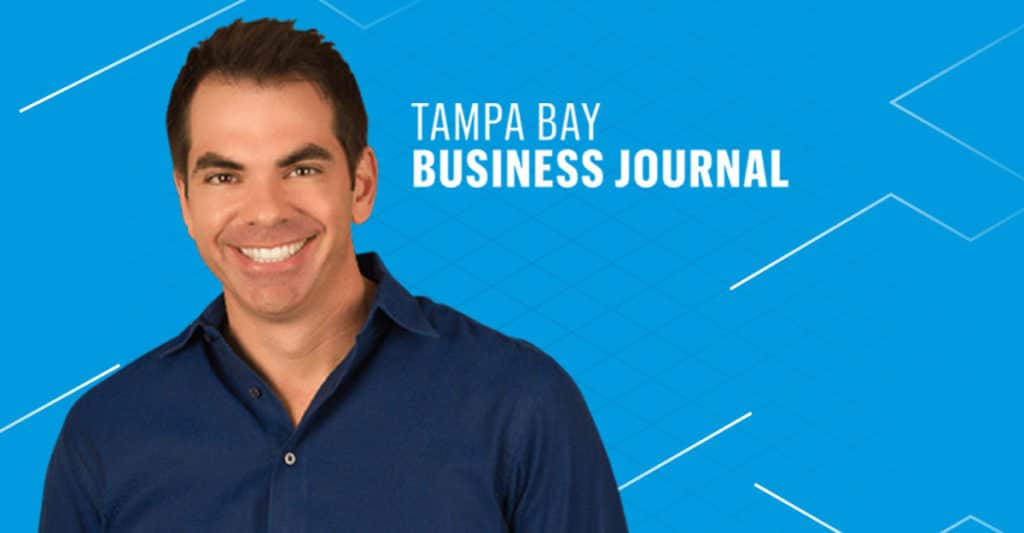
Tampa Bay’s boom in popularity and population are only paying off for some.

Tampa Bay’s boom in popularity and population are only paying off for some.
Tampa Bay Business Journal
Henry Queen, Reporter
Jan 28, 2022
Some individuals from the area are being priced out, and they can’t find a job that fits their financial needs. Research from the Brookings Institution last year shows that Tampa Bay would have to produce 81,000 jobs that pay a family-sustaining wage to close the gap between current wages and living expenses.
Average wages here are increasing — to the tune of about 4% per year, said John Flanagan, CEO of CareerSource Tampa Bay. But that’s not enough to keep up with inflation. Tampa Bay recently posted the worst inflation of any major U.S. metro area, with November 2021 prices up 8% from a year before.
Even with the influx of people during the pandemic, there aren’t enough people to fill jobs. The issue is especially acute within the tourism and hospitality industries; people have realized that wages in those industries just aren’t enough.
“There’s going to be no choice but to see wages increase if they’re going to want to attract talent,” Flanagan said. “There’s other opportunities.”
Tampa Bay’s average service sector wage increased by over $2,000 to $30,566 from 2019 to 2020, according to the Tampa Bay Partnership. Workers laid off at the start of the pandemic weren’t included in the calculation, thus skewing the numbers. Overall, the region ranks 19th out of 20 peer markets in the average wage ($54,019) for all jobs.
Median household income fares even worse: 20th out of 20.
Bob Dutkowsky, former CEO of Tech Data, said he expects the gap between wages and inflation to balance out over time. About four decades ago, Dutkowsky bought a house with a 21% interest rate on his mortgage. Gas was being rationed. Relatively speaking, today’s environment isn’t so bad, he believes.
But there are other phenomena happening today that weren’t present then, including a deadly pandemic, the rise of remote work, supply chain disruptions, a housing supply shortage, new working-age Floridians and declining fertility.
That low birth rate dampens Florida’s population boom. According to Brookings, Florida’s population increased by about 1% in 2020- 21, slightly lower than the previous period. The country as a whole saw something close to zero growth in 2020-21.
It all goes back to supply, demand and the actual people at the heart of the economy. Many of those people, especially those of color, are being left behind. Brookings research right before the pandemic indicated that the Tampa Bay region ranked 48th among 53 metro areas on closing the earnings gap between whites and workers of color.
“Economic development today is very much about people and talent,” said Amy Liu, vice president and director of Brookings Metro. “We’re even more service-oriented than we ever were before. And that service economy is delivered by people.”
Tampa Bay’s economic development efforts should focus on getting companies in industries that will pay a family-sustaining wage, Liu said. That will benefit everyone.
To attract out-of-state workers, existing companies have dangled sunshine, low taxes and the welcoming and exciting atmosphere. But there are downsides employers must get real about, including but not limited to rising housing prices and cost of goods.
Some companies are adapting and paying high wages. BlueGrace Logistics CEO Bobby Harris considers his company to be one of the highest-paying in the area. Amid great demand, he recently hired 32 people in jobs like IT, sales and full-stack development.
[The new hires know] they’re solving a lot of problems for companies that need to get their goods.
“The thing that helps us is they’re in an area of purpose,” Harris said. “[The new hires know] they’re solving a lot of problems for companies that need to get their goods.”
Word of mouth and the lack of pandemic restrictions also helps, Harris said. He also offers his employees free on-demand mental health care counseling along with free lunch on Tuesdays and Fridays.
Successful companies attract and retain talent by offering higher salaries and better and more flexible benefits.
“It’s important for companies to be thinking differently,” Tampa Bay Chamber CEO Bob Rohrlack said. “The days of leave your personal life at the door when you come to work are gone. So companies have to be more aware and in tune with what’s going on in the employee’s personal life and how to help support them through that.”
If not, be prepared for two of the most common words in today’s workforce: “I quit.”
Get expert logistics insights delivered straight to your inbox
"*" indicates required fields